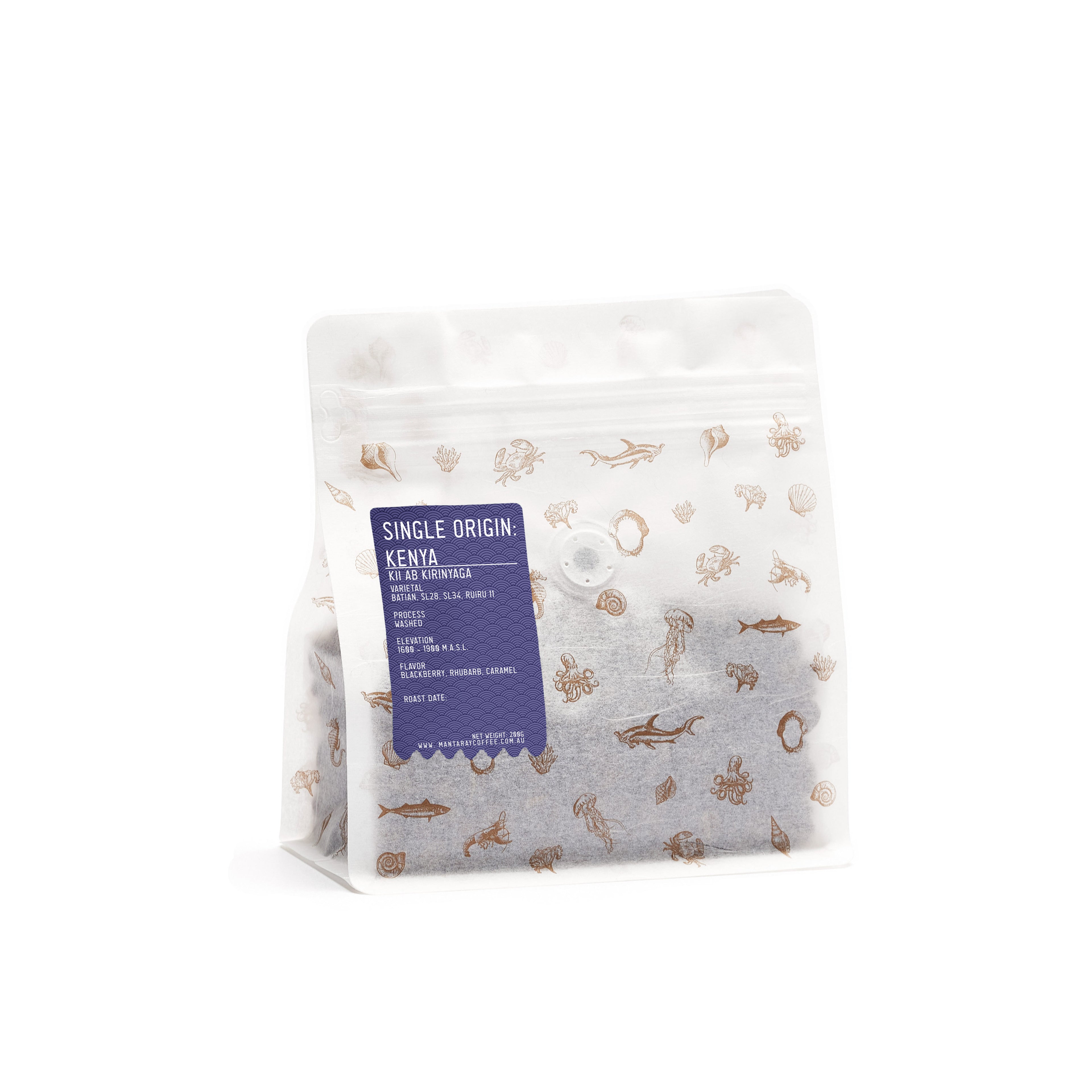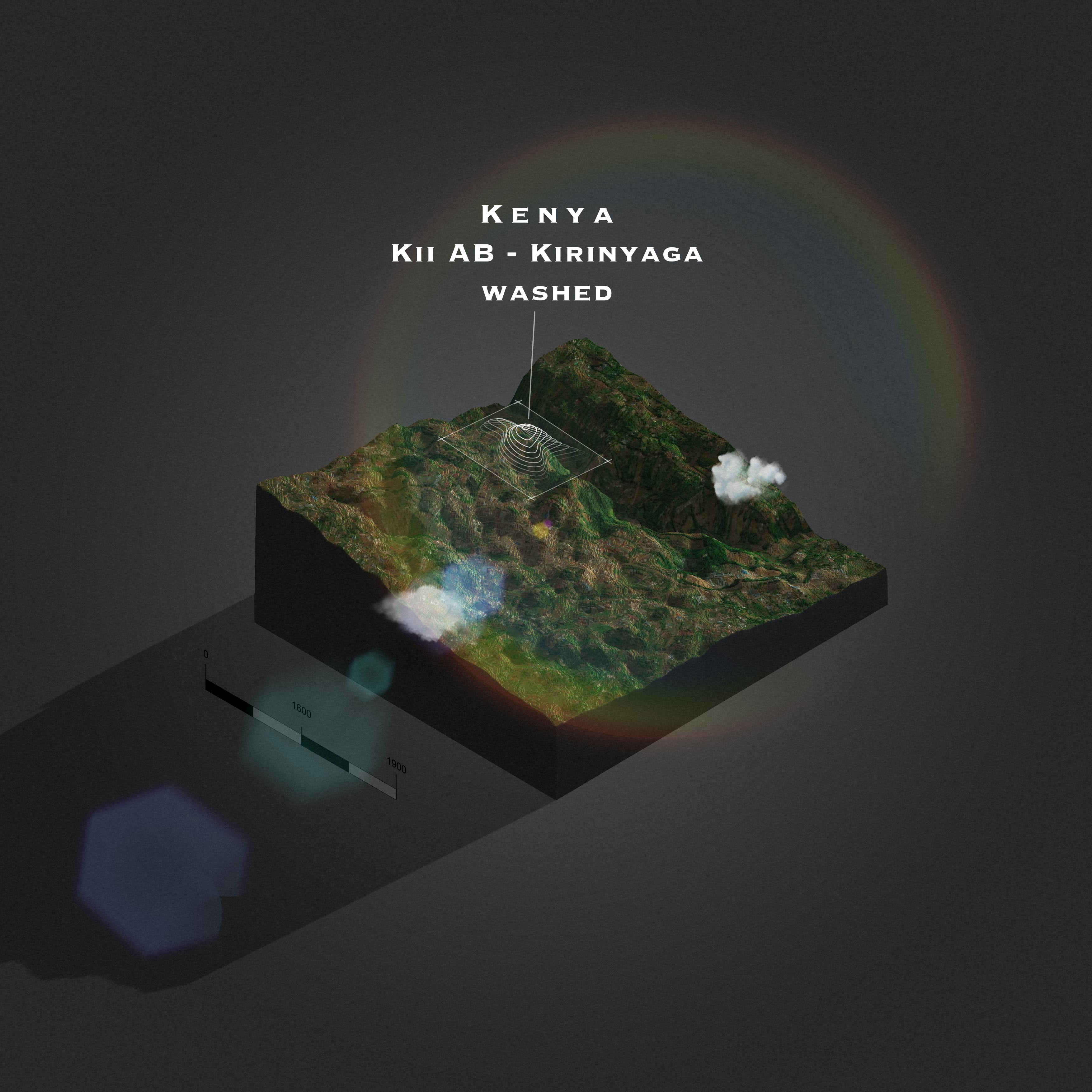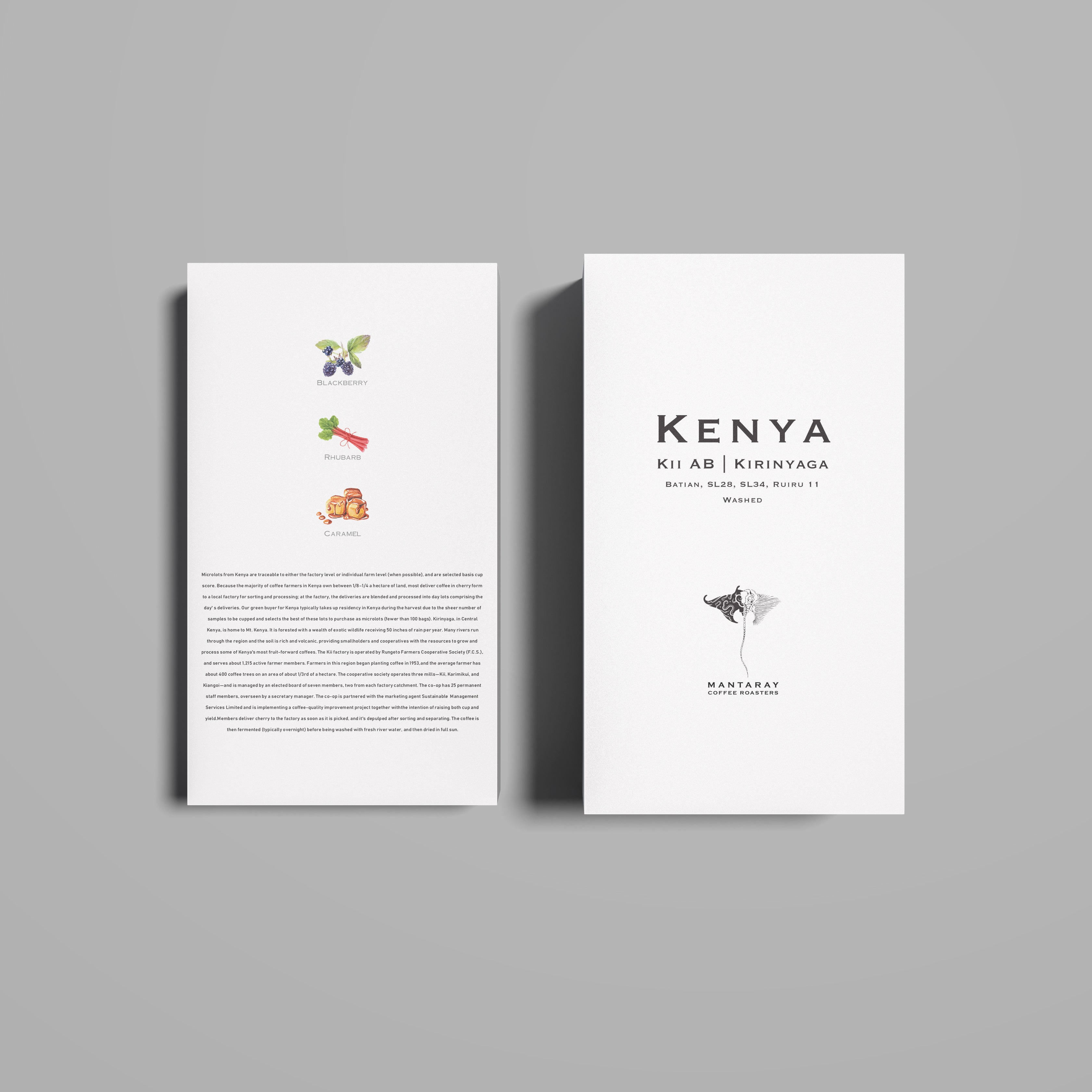
Kenya Kii AB Kirinyaga Washed (Single Origin Filter)
About This Single Origin
Kenya Kii AB Kirinyaga Washed (Single Origin Filter)
ROAST: Filter Roast
PROCESS: Washed
REGION: Kirinyaga
ELEVATION: 1600-1900
VARIETAL: Batian, SL28, SL34, Ruiru11
CUP: Blackberry, Rhubarb, Caramel
Microlots from Kenya are traceable to either the factory level or individual farm level (when possible), and are selected basis cup score. Because the majority of coffee farmers in Kenya own between 1/8–1/4 a hectare of land, most deliver coffee in cherry form to a local factory for sorting and processing; at the factory, the deliveries are blended and processed into day lots comprising the day' s deliveries. Our green buyer for Kenya typically takes up residency in Kenya during the harvest due to the sheer number of samples to be cupped and selects the best of these lots to purchase as microlots (fewer than 100 bags).
Kirinyaga, in Central Kenya, is home to Mt. Kenya. It is forested with a wealth of exotic wildlife receiving 50 inches of rain per year. Many rivers run through the region and the soil is rich and volcanic, providing smallholders and cooperatives with the resources to grow and process some of Kenya's most fruit-forward coffees.
The Kii factory is operated by Rungeto Farmers Cooperative Society (F.C.S.), and serves about 1,215 active farmer members. Farmers in this region began planting coffee in 1953, and the average farmer has about 400 coffee trees on an area of about 1/3rd of a hectare. The cooperative society operates three mills—Kii, Karimikui, and Kiangoi—and is managed by an elected board of seven members, two from each factory catchment. The co-op has 25 permanent staff members, overseen by a secretary manager. The co-op is partnered with the marketing agent Sustainable Management Services Limited and is implementing a coffee-quality improvement project together with the intention of raising both cup and yield.
Members deliver cherry to the factory as soon as it is picked, and it's depulped after sorting and separating. The coffee is then fermented (typically overnight) before being washed with fresh river water, and then dried in full sun.




